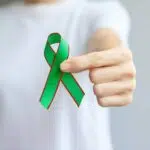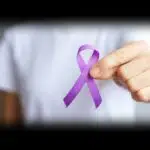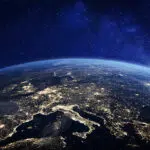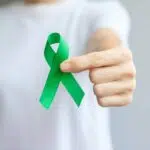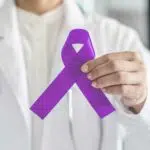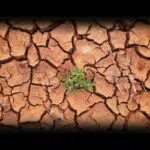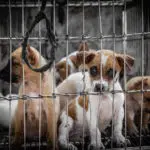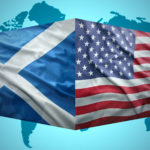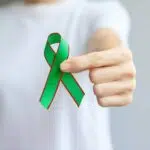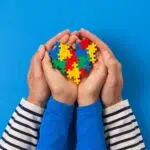Genocide Awareness Month is observed every year in April to share knowledge of what genocide is, genocides that have happened in the past, and learning about the continuing horrors of genocide today. It might be hard for many of us to understand how something as barbaric as genocide, which we’ve mostly read about it in history books and seen in documentaries, can still be happening today. This month, take a few minutes to remember those who lost their lives to genocide and stand up for those suffering these atrocities today.
History of Genocide Awareness Month
April is observed as Genocide Awareness Month as it is associated with many significant dates related to genocide. The 20th century is often called the “Century of Genocide.” Unfortunately, this trend has continued into the 21st century. Many of these tragic events either started in April or have significant events which happened in April. Some of these include the Armenian Genocide, the Holocaust, the Cambodian Genocide, and the 1994 Genocide against the Tutsis in Rwanda. And so, the month of April has been chosen to raise awareness on protecting innocent people, prosecuting the tyrants and perpetrators, preventing future atrocities, and also remembering those who have suffered all around the world.
Genocide refers to the deliberate and systemic destruction of a group of people because of their ethnicity, nationality, religion, or race, and has been practiced throughout history. According to Thucydides, the Melos people were slaughtered after refusing to surrender to the Athenians during the Peloponnesian War. It was pretty common in ancient times for victors in a war to massacre all the men of a conquered population.
Today, governments never openly admit to committing genocidal acts. For example, the Iraqi regime of Saddam Hussein asserted its use of chemical warfare against the Kurds in the 1980s as part of an effort to reestablish law and order, while the Ottoman and Turkish governments said all the Armenians killed in the massacres were casualties of war. Even Germany’s Nazi regime did not publicize its atrocities against the Jewish people and other groups.
Even the recent Darfur genocide in Western Sudan, which refers to the mass slaughter and rape of Darfuri men, women, and children, is being carried out by a group of government-armed and government-funded Arab militias known as the Janjaweed or Rapid Support Forces.
Genocide Awareness Month timeline
During World War I, the Armenian subjects of the Ottoman Empire are deported and killed by the Young Turk government.
The Warsaw Ghetto Uprising begins as a part of the Jewish resistance in Nazi-occupied Poland.
Cambodians are systematically persecuted and killed by the Khmer Rouge under the leadership of the Communist Party of Kampuchea general secretary Pol Pot.
Members of the Tutsi minority ethnic group and some moderate Hutu and Twa are killed by armed militias in the 100 days of slaughter.
The Janjaweed systematically destroy Darfuris by burning villages, looting their economic resources, polluting water sources, and murdering and torturing civilians.
Genocide Awareness Month FAQs
What does the Genocide Convention do?
The Convention on the Prevention and Punishment of the Crime of Genocide, usually called the Genocide Convention, is a law instrument that codifies genocide as a crime under International Law. It was adopted by the General Assembly on December 9, 1948, with over 140 states being party to the convention today.
What constitutes a crime against humanity?
Crimes against humanity refer to certain specific crimes committed in the form of large-scale attacks targeting civilians, regardless of their nationality. These crimes include murder, torture, mass systematic rape, sexual enslavement in a time of war, enslavement, persecution, enforced disappearance, and other inhumane acts.
What is the largest ethnic cleansing in history?
The biggest genocide or ethnic cleansing according to the death toll was the Nazi genocide of Soviet Slavs between 1939 and 1945. The World War II casualties of the Soviet Union from all related causes numbered over 20 million, including both civilians and military. The others include the Holocaust against European Jews, the Ukrainian Genocide, Nazi Holocaust against the Poles, and the Khmer Rouge Killing Fields.
How to Observe Genocide Awareness Month
Show your support
Pledge to help the millions of people still being persecuted today in any way you can. Consider making donations to organizations like Genocide Watch, the Auschwitz Institute for the Prevention of Genocide and Mass Atrocities, and the United States Holocaust Memorial Museum, which are working to help those in need.
Honor the fallen
Pause to think of those who have been treated inhumanely in the past at the hands of evil dictators and tyrants. Also, think of those currently under attack and being persecuted for their identity.
Raise awareness
Learn more about how genocides develop, what’s happening in the world right now, and how you can help the victims. Spread this information to your friends, family, colleagues, and others by posting about it on your social media and talking about it. You can also consider writing to your local representatives.
5 Disturbing Facts About Genocide
It leads to poverty
The destruction of lives, resources, and property invariably leads to mass poverty as seen in places like Rwanda and Bosnia & Herzegovina.
It increases crime
The rise in poverty also leads to more crimes being committed, which can be seen in many developing countries.
It destroys infrastructure
Electricity, decent roads, and good housing become luxuries for people going through genocide.
It ruins the healthcare system
Hospitals and clinics naturally get overwhelmed due to less staff and a rise in patients ailing from injuries and diseases, many of which are preventable.
Genocide targets minorities
It often targets minorities and people who are on the fringes of society or don’t fully integrate with the larger society.
Why Genocide Awareness Month is Important
It raises awareness
Only by learning more about an issue can we come together to help fix it. We must acknowledge the events that have led up to genocide and dive deep into the problems while making more people aware of it.
It’s still happening
It’s easy to conjure up black-and-white pictures of people being killed when we think of genocide, but the reality is that millions of people are still being slaughtered today just because of their identity. Do your part for humanity by standing up for those who are being oppressed around the world.
Genocide is preventable
Preventing genocide is a collective action and has been a concern to the international community since the end of the Second World War. Genocide can be prevented by protecting civilians through U.N. peacekeepers, ending impunity through judicial action, taking swift action through military force gathering information, and setting up early warning systems.
Genocide Awareness Month dates
| Year | Date | Day |
|---|---|---|
| 2026 | April 1 | Wednesday |
| 2027 | April 1 | Thursday |
| 2028 | April 1 | Saturday |
| 2029 | April 1 | Sunday |
| 2030 | April 1 | Monday |











































